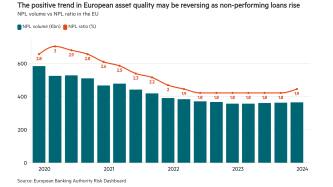The UK is falling behind other countries in the international race to become the most investable market for low-carbon energy, according to 81 per cent of large UK energy companies polled in a new report published by the UK Sustainable Investment and Finance Association.
UKSIF’s Financing the Future: Energy report, which surveyed decision makers across the UK energy sector, revealed that 63 per cent of companies have already moved, or plan to move, investments out of the UK to a market more supportive of their sustainability goals.
Unless more favourable policies — reducing the time it takes for major energy projects to be approved, and ensuring adequate grid capacity to reduce connection times — are put in place, the report warns the UK could miss out on a potential £115bn of private capital. This potential capital is waiting to be deployed by 96 per cent of surveyed energy companies who said they would increase investment into existing or new sustainable/green projects if policies were more favourable.
“It only takes us two years to physically build an offshore wind farm, but the planning process is fundamentally flawed and means it takes us more like 10 years… we need to be much faster,” said Scottish Power CEO Kevin Anderson who is quoted in UKSIF’s report. “For developers, this presents a clear deterrent for investment.”
According to EY’s 2023 Renewable Energy Country Attractiveness Index, which ranks the world’s top 40 markets on the attractiveness of their renewable energy investment and deployment opportunities, the UK slipped from fourth to seventh place due to the failure of its Contracts for Difference Round 5 to attract new offshore wind capacity. “The diminishing of green policies” had also left investors with reduced confidence in UK renewables, said EY.
James Alexander, CEO at UKSIF, whose members (banks, investment managers, pension funds) manage more than £19tn in assets, said there is no shortage of private capital looking for energy projects to invest in. But an international race is underway between countries to become the most investable market for green energy, and the UK is taking its leading position for granted.
Read more
“Multiple decades of arcane and archaic planning rules are putting the UK energy transition in great jeopardy,” said Alexander. “This report highlights the abundance of private capital that is waiting to be deployed to close the funding gap and help accelerate the UK’s energy transition, with companies clearly showing that they are willing to take this investment elsewhere if policy does not evolve.”
Frank Gordon, director of policy for the Association for Renewable Energy and Clean Technology, said delays in getting planning permission or a sensible grid connection date are making projects “unfinanceable” and ultimately slowing the UK’s ability to build an affordable, secure and decarbonised energy system.
The UK has a target to reach 50 gigawatts of offshore wind by 2030 and achieve a fully decarbonised electricity system by 2035. Approximately £200bn has been invested in low carbon energy projects since 2010, according to government figures, via a combination of government funding, private investment and levies on consumer bills. But an additional £280bn–£400bn of further investment (public and private) is needed to decarbonise the UK’s power sector.
In February, the UK became the first G7 country to halve its emissions, cutting them by 48 per cent between 1990 and 2021. But Emma Pinchbeck, CEO at Energy UK, said we cannot rest on past achievements, as the UK is forecast to have the slowest growth in low-carbon electricity generation of the world’s eight largest economies between now and the end of the decade.
“We need to match the levels of ambitions set by our targets and unlocking private capital is the way to do that, while also bringing benefits to the whole economy,” said Pinchbeck.
“Analysis has shown that the most ambitious approach to net zero could boost the UK’s [gross domestic product] by 6.4 per cent — or £240bn — by 2050, roughly equivalent to the current size of our manufacturing sector.”













